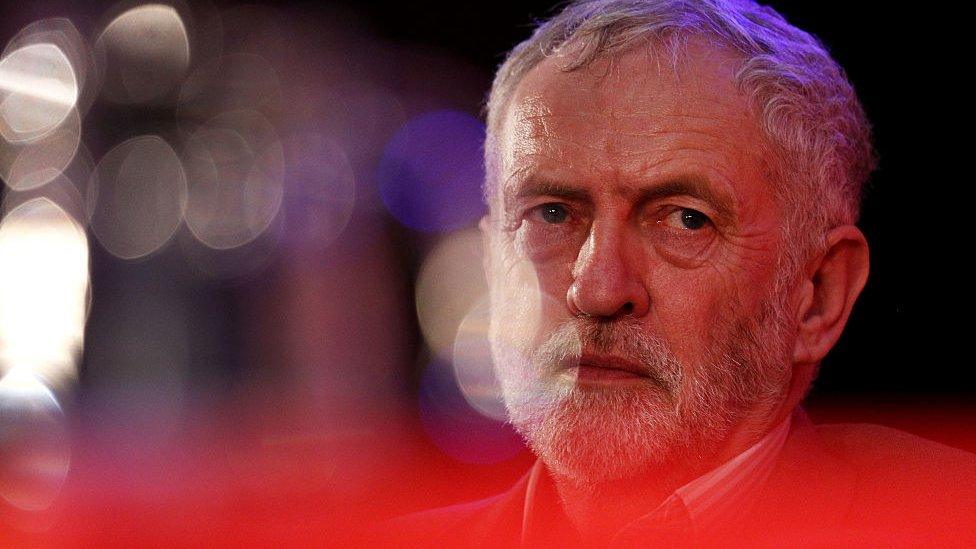The battle for Labour's future: A tale of two coups
- Published
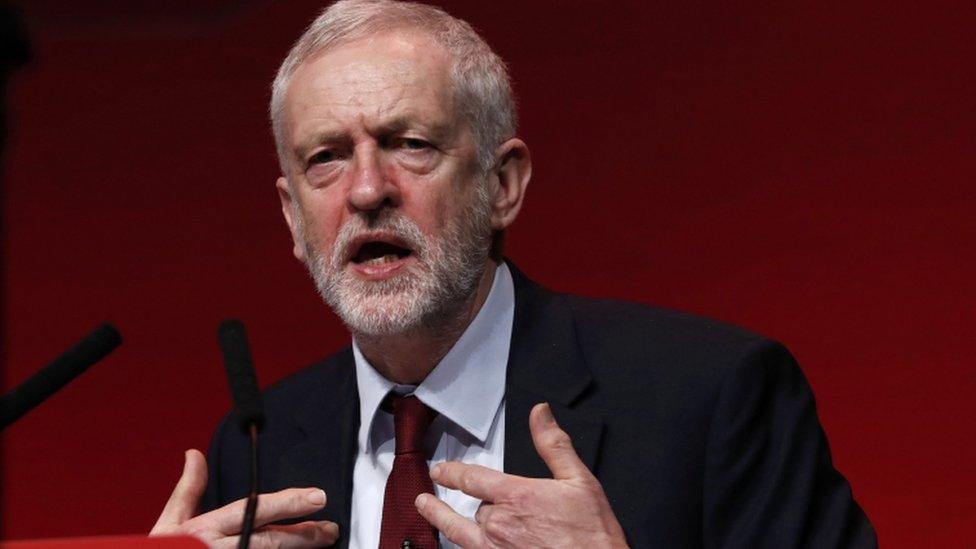
The shadow chancellor John McDonnell has been warning left-wing members of Labour that there is a "soft coup" aimed at weakening then toppling Jeremy Corbyn.
Writing for Labour Briefing he said: "It's planned, co-ordinated and fully resourced. It is being perpetrated by an alliance between elements in the Labour Party and the Murdoch media empire, both intent on destroying Jeremy Corbyn and all that he stands for.
"The coup is not being waged up front in public but strictly behind the scenes."
But soon after publication, his spokesman pointed out that the article had been written - although not published - before the party's defeat in the Copeland by-election, adding that the shadow chancellor was now calling for "unity."
And shadow cabinet member Barry Gardiner told the BBC that Mr McDonnell's comments were prompted by "frustration" at what was seen as an unhelpful contribution from the former party leader Tony Blair on Europe - ahead of by-elections in two Brexit-backing areas.
So is there really a coup being plotted against Mr Corbyn?
Well, yes - but not in the conventional sense.
Unite election
Last year, more than eight out of ten Labour MPs voted for a motion of no confidence in Mr Corbyn, but still failed to oust him when the increasingly left-wing membership simply re-elected him, and with a bigger mandate than before.
His opponents won't be taking that road again, because it is still likely to be a dead end.
Instead, a slower diversionary route is being seen by some as the way forward.
One of Mr Corbyn's staunchest backers has been Len McCluskey, the leader of Britain's biggest union, Unite.
His former flatmate Tom Watson - Labour's deputy leader - failed to persuade Mr McCluskey in turn to persuade Mr Corbyn to agree a leaving date from the party leadership last summer.
But Mr McCluskey is up for re-election at the end of April and is being challenged by West Midlands organiser Gerard Coyne, who is politically to his right.
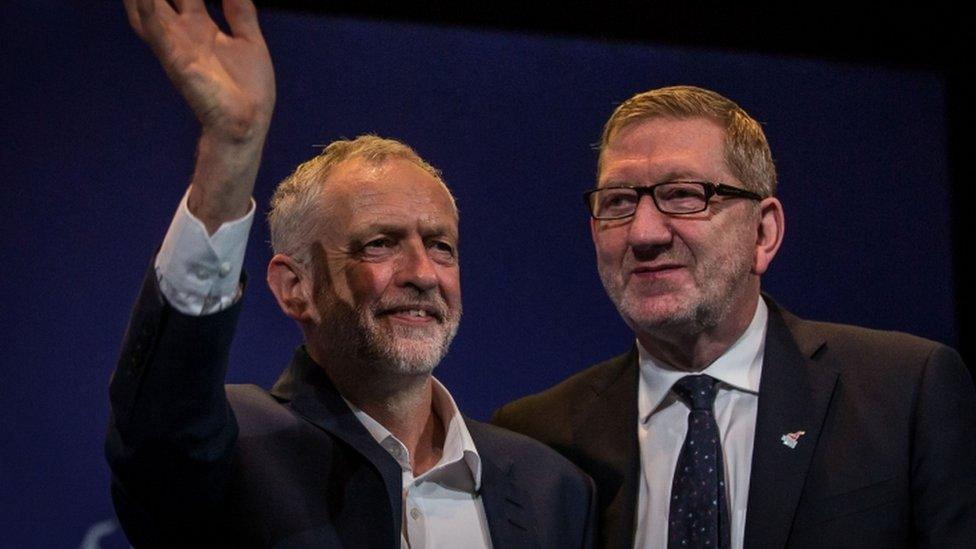
One of Mr Corbyn's staunchest backers has been Unite's Len McCluskey
Mr Coyne's initial pitch was that the union was too focused on Westminster politics under Mr McCluskey and not enough on members' interests.
But following the Copeland defeat, he has more explicitly attacked Mr McCluskey and Mr Corbyn - accusing the former of wasting members' money propping up the latter and calling for loans made to Mr Corbyn's re-election campaign to be repaid rather than written off.
The implication is that a Coyne-led union wouldn't be funding a Corbyn-led Labour Party and that a new general secretary of Unite would apply pressure on the Labour leader to stand down.
However, some of Mr Corbyn's critics at Westminster believe the Coyne campaign so far has had too subtle a message to gain prominent media coverage and should be more explicit about wanting to see the Labour leader deposed.
So far, these Corbyn critics aren't confident that Mr Coyne will succeed in his bid to become the next general secretary of Unite. And - frankly - even if he does, he might be constrained by a more left-wing union executive if he were to try to pull the plug on the current party leadership.
So the real battle is being waged largely beneath the radar at the party's grassroots.
And it is Mr Corbyn's supporters who are being accused of trying to mount a coup.
The 'McDonnell amendment'
Mr Corbyn's opponents say the real coup is the one being plotted by those close to the leadership.
They argue that those on the left of the party want to change Labour irrevocably and ensure it can't return to its Blairite past.
While polling suggests that Mr Corbyn isn't a popular leader, the argument goes that the left can't afford to ditch him unless an equally left-wing leader could be guaranteed to succeed him.
So the "coup" that Mr Corbyn's critics would point to is this: an attempt to change Labour's leadership rules to enable a left-wing successor to get on the ballot.
Currently a candidate for the leadership requires the support of 15% of MPs and MEPs before the wider, left-wing membership gets a chance to vote for them.
Mr Corbyn only succeeded in getting on to the ballot in 2015 because some of those to his right "lent" support to "broaden the debate" following the party's unexpectedly bad election result.
That simply wouldn't happen again.
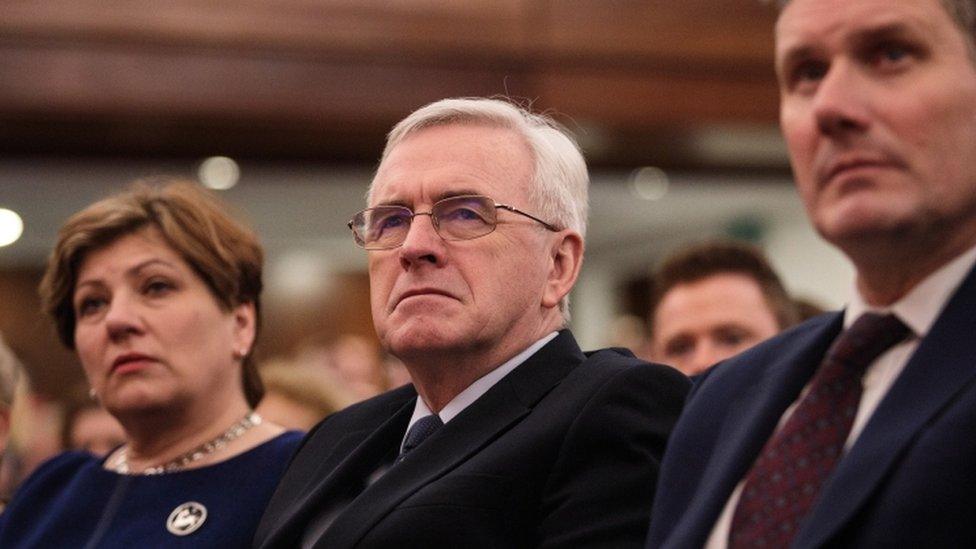
A potential change to the Labour leadership ballot rules has been dubbed the "McDonnell amendment" by Mr Corbyn's critics
So at this year's annual party conference in September it is almost certain delegates will be given the option to reduce that threshold from 15% to just 5% - a much smaller hurdle for a left-wing candidate to overcome.
That would mean a leadership candidate would need the backing of just 13 elected politicians instead of 37 before being able to put themselves forward to the wider membership.
This has been dubbed the "McDonnell amendment" by Mr Corbyn's critics.
They say this rule change could see the party leadership "transfer" to the shadow chancellor, who failed to get on to the leadership ballot in 2007 when Tony Blair stood down, because he gained too few nominations from his fellow politicians.
But he has denied any leadership ambitions and, in truth, it could be younger left-wing shadow cabinet members such as Rebecca Long-Bailey or Angela Rayner who would benefit from a lower threshold.
Another potential beneficiary could be Clive Lewis, who resigned from the shadow cabinet over the leadership's backing for triggering Article 50 - breaking with those around Mr Corbyn in the process - but potentially endearing himself to the largely pro-Remain membership.
He has denied already registering internet domain names for a leadership bid.
But internal groups such as Labour First and Progress - put over-simply, Brownites and Blairites - are working closely together to try to prevent any of the above from succeeding.
Grassroots battle
Their view is that if Mr Corbyn was simply replaced by someone with similar politics, Labour would have missed an opportunity to appeal to a wider electorate who believe the party is now too left-wing.
So they are battling against the proposed leadership rule changes.
The only way to stop the changes is to get more anti-Corbyn delegates to Labour's conference this autumn than those who support the leadership.
That means getting more of the leadership's critics along to the local constituency meetings that choose the delegates.
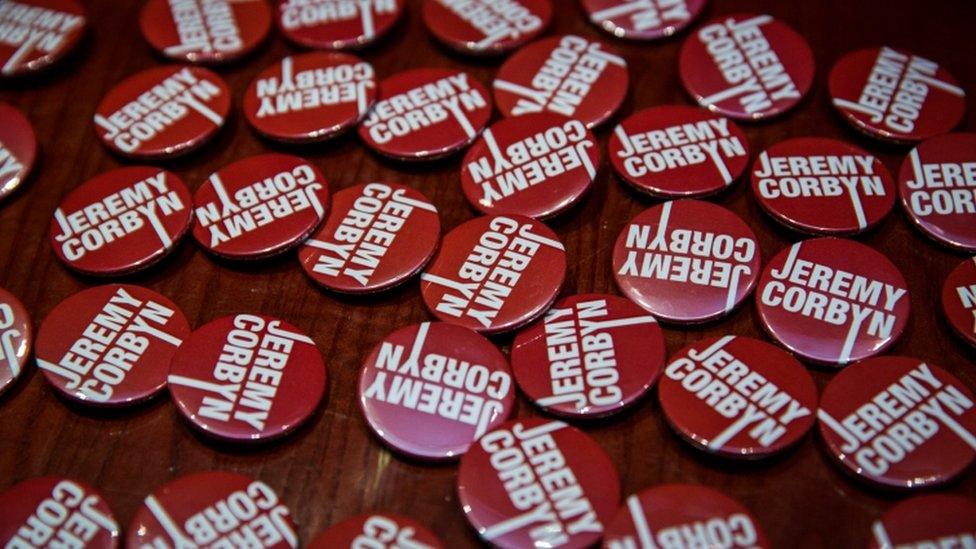
Mr Corbyn only succeeded in getting on to the ballot in 2015 because some of those to his right "lent" support to broaden the debate
It's estimated that perhaps about 55% of last year's conference delegates were not Corbyn supporters and his critics believe they can succeed in delivering a similar, if not slightly better, number this year.
Labour First recruited a full time organiser last month to assist in this project.
With a large influx of left wing members following Labour's 2015 defeat, the assumption was that many local Labour parties would move to the left.
But that has not been happening on quite the scale that was imagined, with some of the more recent members being happier to vote electronically in leadership elections for Mr Corbyn than attending what can often be tedious meetings to nominate conference delegates.
And Mr Corbyn's opponents say that in recent internal elections - even in parts of London that would be assumed to be pro-Corbyn - those supportive of the leadership have been defeated.
So what future for Corbyn?
If this year's conference were to reject a change to the leadership rules, the issue can't be raised again for three years - in other words, until after the next election.
That is likely to mean that Mr Corbyn would be urged by his inner circle to stay on until 2020 (assuming no early election) because a left-wing legacy couldn't be guaranteed.
At the weekend Mr Corbyn made it clear that was indeed his intention to contest the next general election - but the working assumption by some others in leadership positions is that he would ideally want to stand aside in 2018 if a suitable successor were to emerge.
To give him that option, Momentum - the group set up to support him and to turn Labour into more of a social movement than a conventional political party - will have to work hard to defeat his opponents at the grassroots.
This won't be as glamorous as the two summers of leadership rallies that have gone before, but might be far more important in determining the future direction of the main party of opposition.
- Published26 February 2017
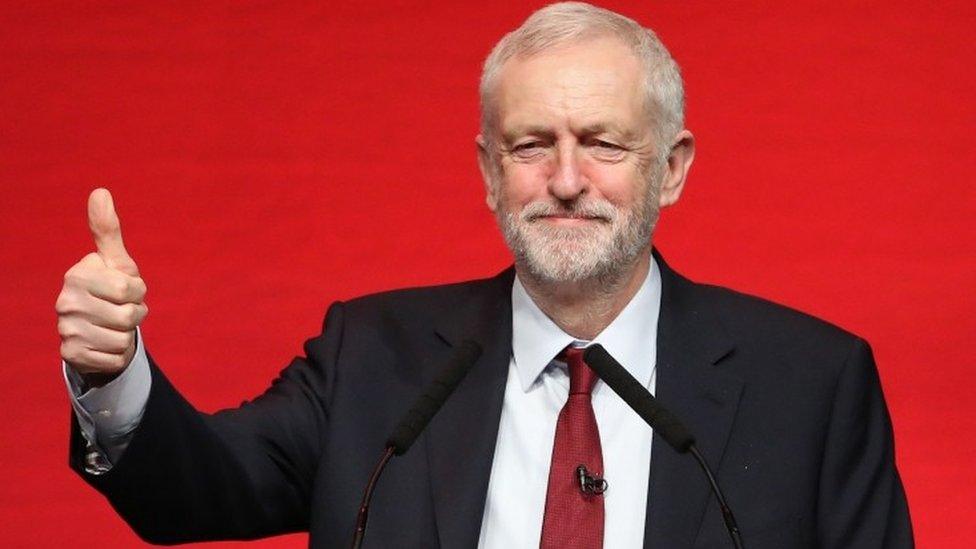
- Published24 February 2017
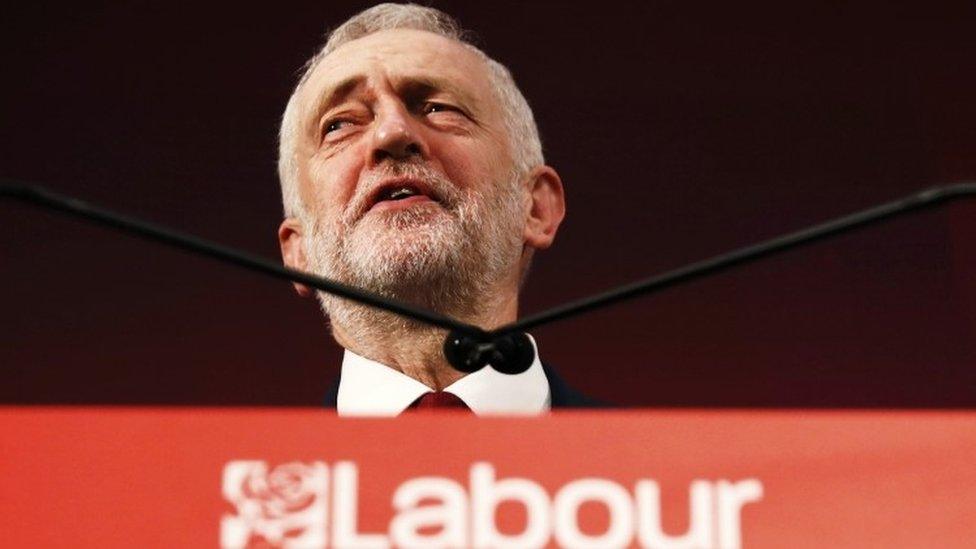
- Published11 February 2017
